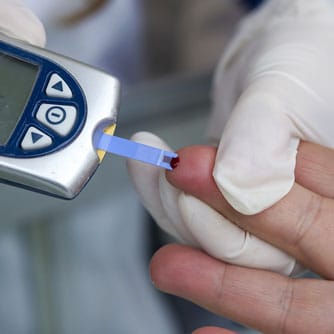In type 1 diabetes, the immune system’s T cells attack the insulin-producing beta cells in the pancreas. Those affected need insulin treatment to survive. The disease is associated with increased risk of death, long-term health complications, and considerable health care costs.
Results from a clinical trial published in 2019 showed that a two-week course of the drug teplizumab delayed the onset of type 1 diabetes by two years and halved the rate of diabetes diagnoses. Teplizumab is an antibody that binds the surface of T cells to dampen the unwanted immune system response. Since then, a team led by Dr. Kevan Herold at Yale University has collected another 12 months of follow-up data. The researchers also analyzed metabolic data collected before, during, and after the original trial, and measured changes in immune cells to determine how teplizumab works.
The study was supported in part by NIH’s National Institute of Diabetes and Digestive and Kidney Diseases (NIDDK), National Institute of Allergy and Infectious Diseases (NIAID), and Eunice Kennedy Shriver National Institute of Child Health and Human Development (NICHD). Results appeared on March 3, 2021 in Science Translational Medicine.
All 76 participants in the clinical trial were non-diabetic when the trial began. They ranged from 8 to 49 years old, with a median age of 13. All were at risk of developing type 1 diabetes because they had a relative with the disease and had signs of autoimmunity and impaired glucose regulation.
The effects of teplizumab treatment persisted through the extended follow-up period. Treated individuals were diagnosed with type 1 diabetes an average of 59.6 months after treatment, compared with 27.1 months for untreated individuals. At the end of the follow-up period, 50% of those treated with teplizumab remained diabetes-free, compared to only 22% of those not treated.
Insulin production in response to glucose was impaired in the participants before they enrolled in the trial. In participants given an inactive placebo, insulin production declined through the first six months of the study. But in those treated with teplizumab, insulin production improved after treatment.
These results suggest that a single course of teplizumab may provide long-lasting improvement in beta cell function. This, in turn, could delay or even prevent the development of type 1 diabetes in high-risk individuals.
“If approved for use, this will be the first drug to delay or prevent type 1 diabetes,” Herold notes.
It’s still too soon to tell if teplizumab will keep any participants from ever developing diabetes. But even delaying type 1 diabetes onset can make a big difference in the lives of those at high risk.
“Any time without diabetes is important, but particularly so for those children who might have a chance to grow up without it,” Herold says.




